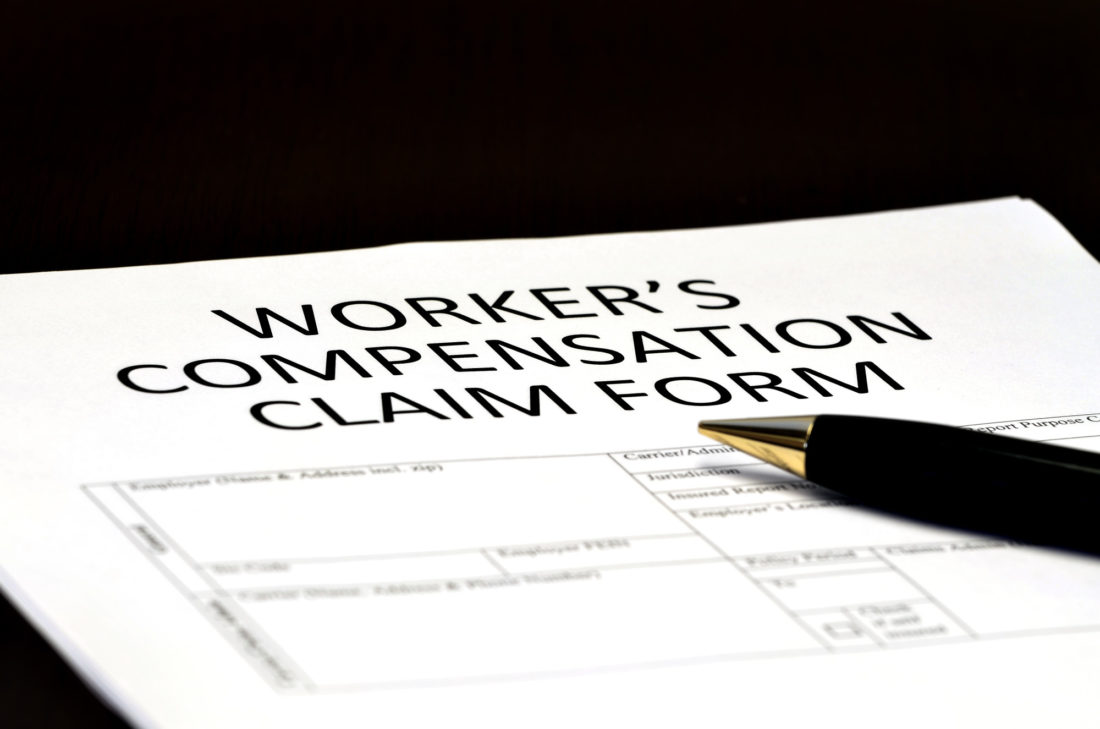 According to statistics by the Occupational Safety and Health Administration, 14 workers died on the job every day in 2018. Furthermore, there were 2.8 million cases of non-fatal workplace injuries and illnesses in the same year.
According to statistics by the Occupational Safety and Health Administration, 14 workers died on the job every day in 2018. Furthermore, there were 2.8 million cases of non-fatal workplace injuries and illnesses in the same year.
As an employee, an injury or illness can occur while working, making it hard for you financially. As a result, you need to know how to apply for workers compensation in line with your state’s rules and regulations to defray the unexpected costs.
Here’s a look at how you can file a workers’ comp claim and who qualifies to file one.
Table of Contents
What Is Workers’ Compensation?
Workers’ compensation is a type of insurance policy that offers benefits and replaces lost wages when a worker gets injured while on-the-job. When an employee seeks workers’ compensation, they choose to relinquish the right to sue their employer for the cause behind the injury or illness.
Individual states primarily govern the rules and regulations overseeing workers’ compensation. As a result, there is no single set of cohesive rules and regulations around the policy and how it applies across each injury and illness.
For example, in most jurisdictions, employers can purchase workers’ compensation insurance through private policy providers. However, some states and territories require that all employers only use specified state-run funds (known as monopoly state funds).
These states and territories include:
- Ohio
- North Dakota
- Wyoming
- West Virginia
- Washington
- The U.S. Virgin islands
- Puerto Rico
It is, therefore, imperative that before you take up employment in a different jurisdiction, you should first look up their workers’ comp guidelines.
How to Apply for Workers Compensation
Workers’ compensation provides coverage for medical expenses, workers compensation death benefits, lost wages, and lawsuits that relate to workplace injuries or illnesses.
Various states have different time limits within which you should file a claim for compensation. Generally speaking, you should seek workers’ compensation as soon as possible after the injury or illness occurs. In line with this, you should look up your state’s time limit for a viable application before you begin the claims process.
So, how do you file a workers’ compensation claim?
1. Notify Your Employer of the Injury or Illness
When you suffer a work-related illness or injury, you should begin the claims process by notifying your employer about it. If it’s an emergency, you should first seek medical attention, then inform your employer.
But what about illness or injuries you suffer at work that develop over time? In such scenarios, it’s advisable to talk to your employer about it as soon as you notice the symptoms.
When telling your employer about the incident, you should relay what took place and how it happened. You should also not omit the kind of injury or illness involved or the date and time when it occurred.
All this information needs to go on your written notice to your employer as soon as possible.
Ensure you check your state’s policy on the timeline in which you can file a valid claim for workers’ compensation to improve your odds of success.
2. Fill the Right Paperwork
Once you inform your employer of the injury or illness, they will furnish you with the necessary paperwork for you to fill. The documentation includes:
- The correct workers’ comp reporting forms for the insurance provider
- All the required information about your rights as an employee and workers’ compensation
- The state workers’ compensation board’s reporting form (if it’s applicable in your state)
- All the information you need concerning your return to work
Ideally, an employer should provide you with this information concerning workers’ compensation before you need to seek treatment. In some organizations, the employment packet for new hires includes information on workers’ comp.
3. Your Employer Files the Claim
Typically, your employer has to file your workers’ comp claim with the insurance provider. Additionally, the doctor your employer uses will also need to send in a verified medical report.
Depending on the state’s rules and regulations, your employer may also need to file the documentation with the state’s workers’ comp board. That can be a requisite step even if you are not seeking compensation after a work-related illness or injury.
4. Notice of Claim Status
After submitting all the duly filled in paperwork with the insurance provider, you will wait for a notice of claim status. The insurance company will look at your case and make a decision.
If your claim is successful, the insurer will get in touch with you over the payment details. On the other hand, if the insurer decides your claim is not valid and rejects it, you will get a denied request notice.
You can choose to appeal a denial or ask the insurance provider to review your claims request. Your legal representatives can then take the case up from there with the insurer.
If the insurer gives you the green light, you can accept the payment offer. The structure of this offer will include covering your medical bills, any medicine, disability payments and compensation for lost wages.
You have the option of seeking a lump sum payment or arriving at a structured payment plan with the insurer.
Regardless of the decision your insurance provider will arrive at, they will need to notify the state’s workers’ comp board about it.
Who Is Eligible to Apply for Workers’ Compensation?
It is critical to note that not every employee can qualify for workers’ comp. The basic requirements to make your claim eligible for compensation include:
1. Work-Related Illness
The illness or injury you suffer must happen while you are doing something beneficial for your employer.
2. Filing Your Claim on Time
When you fail to meet your state’s deadline for reporting a work-related injury or illness to your employer, you risk making your claim invalid. Therefore, you need to find out the stipulation for reporting deadlines in your state.
3. You Must Be on Staff
Only employees can benefit from workers’ comp. If you are a contractor (for example a freelancer, consultant and the like), then you don’t qualify to file a claim.
Furthermore, you will need to be working for an employer who carries workers’ compensation. Otherwise, you won’t have room to file any claim.
Get the Help You Need
Every day, injuries, and illnesses in the workplace occur, and should one befall you, you need a backup plan to cater to the unforeseen expenses. Workers’ comp is a useful tool to help you wade through the crisis, and you, therefore, need to know how to apply for workers compensation successfully.
Do you want to learn more about how to improve your career? Check out more of our posts for tips and insights to enhance your work life.







